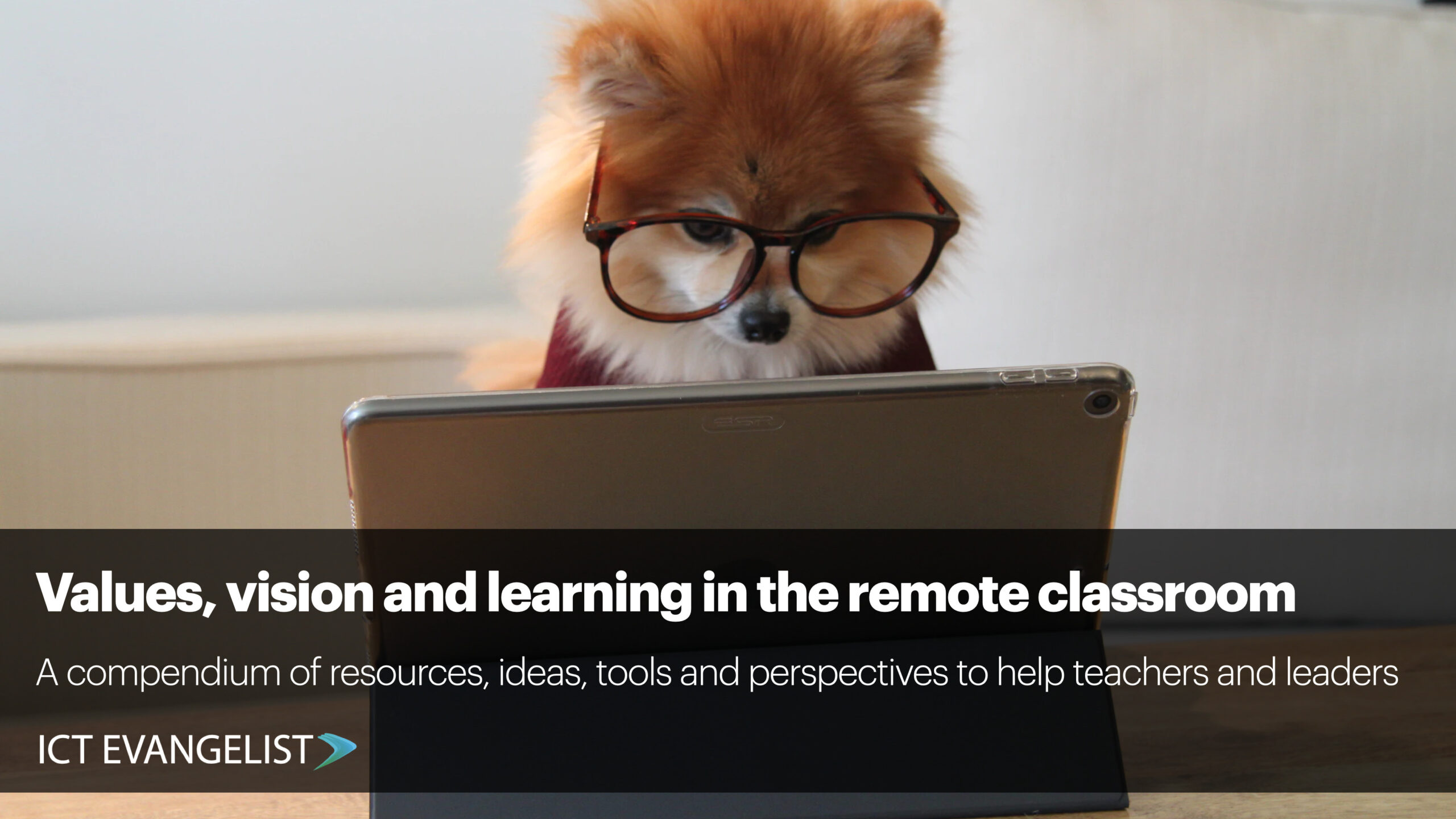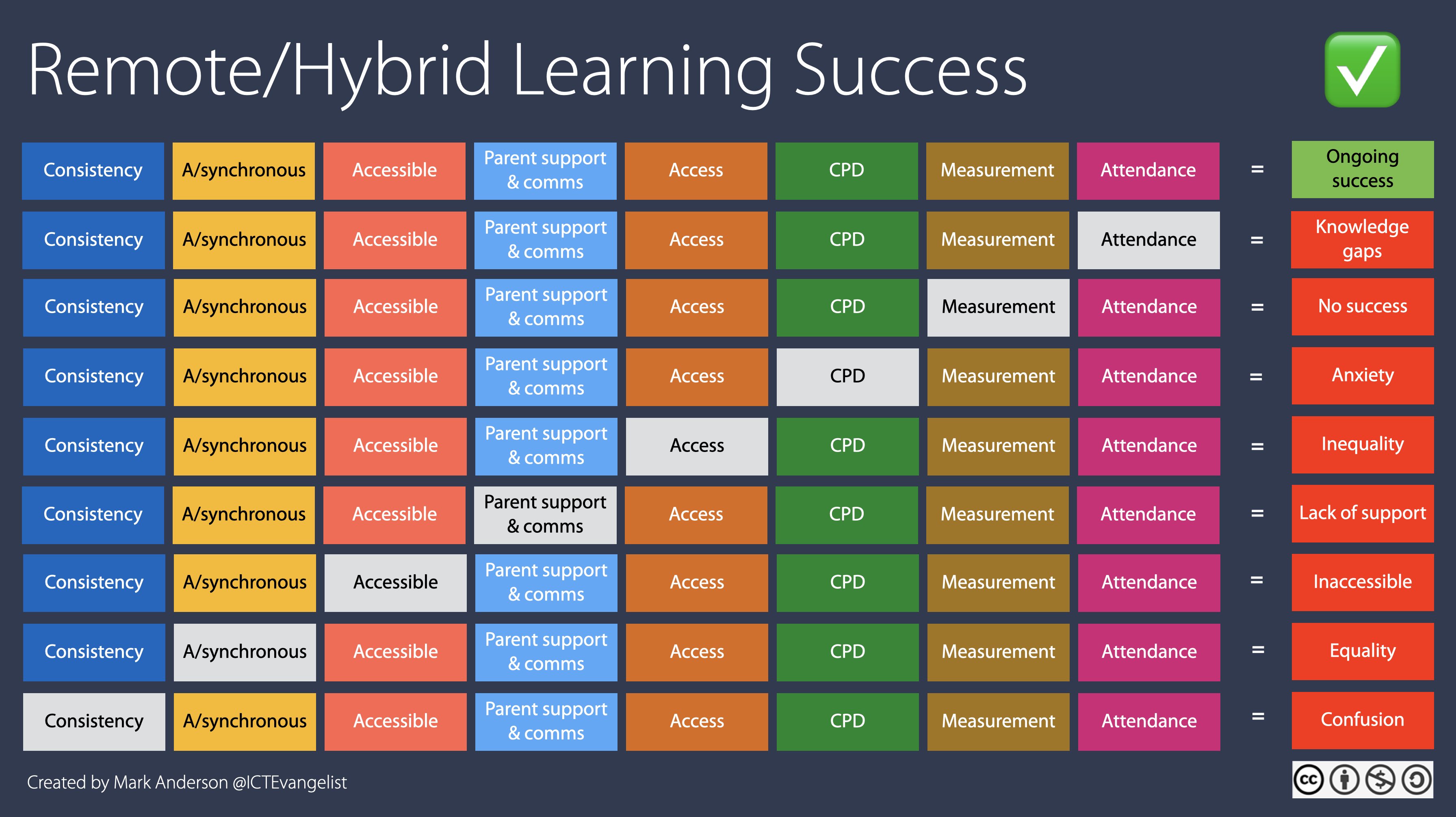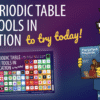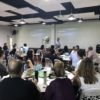
Well, here we are again, back in lockdown and remote learning in full swing. As I look around the Twittersphere there are many strands to learning and teaching. On the one hand, you have Gavin Williamson and cronies asking for parents to tattle on schools not doing well. You have the initiative sparked by David Mitchell asking for parents to use that ‘hotline’ to share about schools doing well and Ofsted being inundated by parents saying how great schools are doing.
You have the ideologies of the DfE being that Oak is the best model for online delivery which as Bob Harrison and many others attest, simply isn’t learning. Alongside this, you have teachers and schools scrambling for ideas for different teaching and learning strategies with technology as this curation from Tom Sherrington shows. It shouldn’t though be about lots of different new technologies though, which I’ll come on to later.
In short – it’s somewhat of a nightmare for educators. Sure, having had lockdown last year, we should be in a much better place than this. But we are not. My own experiences of home learning haven’t been a bed of roses either, having spent time with my own son in Year 7 this week, in tears, trying his hardest to do what is asked of him but struggling to cope with the pressures.
So what do we do?
Well, in a Twitter world where every man and his dog thinks they have a silver bullet – we know, there isn’t one.
I’d also add that as we know from our study and learning from cognitive psychology, that learning doesn’t happen well when the stakes are high. So what can we do to reduce those stakes, when the stakes couldn’t literally be higher?
The salient advice offered in this recent webinar from ASCL, expertly chaired by Geoff Barton is superb. As I shared in my tweet last night:
Loved it for so many reasons. Highlights include the unexpected F word – fun and a clear focus on things other than the actual technology: pedagogy, feedback, wellbeing, values, engagement, attendance, safeguarding, vision, curriculum…
Invigorating viewing. Thanks @ASCL_UK
— Mark Anderson 💛✨💻👨🏽🏫🏆🌈 (@ICTEvangelist) January 9, 2021
The best thing about the webinar, for me, was the focus on things other than technology. Yes, obviously, we need technology to enable these things to happen, but good remote learning isn’t about the technology. As I’ve shared hundreds of times since she (Zoe Elder) first articulated this with me more than a decade ago when we worked together,
“technology should enhance not dictate the learning.”
So… again, what to do? Well, simplicity is key. Keeping the main thing, learning and teaching is absolutely paramount. We know what a good one looks like and there are so many resources out there that support this. From Rosenshine’s Principles…
Spent time this week looking at which of rosenshines principles we can apply whilst in a remote learning environment. It should always be about ensuring children learn – not just ‘live lessons’. As always the staff @stbartsRWB are just incredible. #soar #stbartsway pic.twitter.com/ytEoDXnwjQ
— Dan Oakes 🌈 (@oakes_dan) January 10, 2021
To the research shared in points 2-4 in the EEF’s summary:
And the key points from their rapid evidence assessment:
Best evidence on supporting students to learn remotely
Here's our 1-page summary of the existing research (from 60 systematic reviews and meta-analyses) distilled into 5 key findings and implications.
Available here: https://t.co/I4PKCH4ldK pic.twitter.com/hJIh3e2V2p
— EEF (@EducEndowFoundn) January 5, 2021
We can distil all of this down in to keeping things pure and simple and linked to our vision, values and what we are trying to do for our communities.
Coincidentally, a resource I made back in March/April of 2020 to support schools I was working with on a consultative level before the EEF guidance was shared publicly is this one below which many have found useful to frame their thinking around too:
A highlight of the ASCL webinar was that, for the most part, hardly any platforms were mentioned; sure there were a few but as was alluded to by Barton, it really shows how far we’ve come when the majority of participants were sharing about context, vision, values and applying principles that work to ensure all stakeholders in your school or trust, regardless of size, are catered for.
Ensuring the blend of considerations, as shown in my infographic helps. It doesn’t dictate but helps frame thinking to your context. Learning, relationships, wellbeing and support should be at the heart of all that you do.
Wisdom not data
In a meeting I had this week preparing for a webinar I’m undertaking with Envoplan, I met with Dr Adam England. In that conversation, we discussed lots of things but one area that was particularly salient was the power of tools such as CENTURY, which are powered by AI.
I shared the adage about how important it is for teachers to have access to quality information, not data – the idea that data becomes information once it gets context.
England’s retort on this point really resonated with me – yes, information is important but it’s the wisdom it brings that it what teachers need and this is where we can really see how technology has helped many schools this year and tools such as CENTURY have really come into their own. It was one of the many things discussed in a webinar I undertook with CENTURY and wrote about here.
Tools such as Google’s Data Studio, Power BI and Insights in Teams are all great ways to gain wisdom about your students progress and their engagement in their education, regardless of their geography too.
On Saturday, I tweeted this:
Quality #remotelearning isn't about meeting the demands of @educationgovuk. Just as a good Ofsted should be a by-product of what you do, the same applies. It's about meeting the needs of your communities who/however that need lies. #SupportTeachers #SupportChildren #Community
— Mark Anderson 💛✨💻👨🏽🏫🏆🌈 (@ICTEvangelist) January 9, 2021
For many teachers, remote learning is a bit like going back to your NQT year. What might have previously taken you just a few minutes to put together for your classes IRL (in real life) now takes much longer.
Take for example this outtakes video shared on Twitter this week:
@JakeWest131 Part 1 pic.twitter.com/7M9Fcq7Kpg
— EducatingAli (@AliEducating) January 7, 2021
Whilst it’s fun and to err is to be human. We all make mistakes. My advice around all of this is:
- Not to try and replicate what happens in class
- If you make a mistake, so what – carry on.
Learning trumps teaching and so in this world we now find ourselves in it’s imperative we keep to not just our values, but what we know works too. If 2020 was a year in edtech of integrations and getting platforms to a place where they best serve this type of hybrid learning – note these popular hashtags #hybridlearning and #remotelearning include the word learning and not teaching(!) 2021 should be the year we stick and hold true to our values, the vision for our communities and continue to do what is right in our contexts.
Sharing ideas for what works is helpful but it isn’t about platforms, tools or getting our videos perfect. Putting myself in the place of my son, what he needs is a teacher who is present, a teacher who is available and being that guide on the side that supports the learner.
People are people, whether they’re 5, 15, 25, 35 or older – being present, helping them when they need it is something we can do easily regardless of the technologies available. Whether it’s in the chat room, the stream, the Zoom, the GMeet, Teams, wherever.
If we are to ensure that our learners’ positive mental health and wellbeing and ultimately progress in their learning is achieved, it is our core pedagogical values around feedback, progress and support that are key to success in your context.
One thing is clear, there is no one size fits all approach and whilst there are a number of philosophical and political reasons why Oak doesn’t really work for me, I do recognise that it is a good resource and one worthy of consideration for your context.
And speaking of context, that is the most important thing:
Quality #remotelearning isn't about meeting the demands of @educationgovuk. Just as a good Ofsted should be a by-product of what you do, the same applies. It's about meeting the needs of your communities who/however that need lies. #SupportTeachers #SupportChildren #Community
— Mark Anderson 💛✨💻👨🏽🏫🏆🌈 (@ICTEvangelist) January 9, 2021















